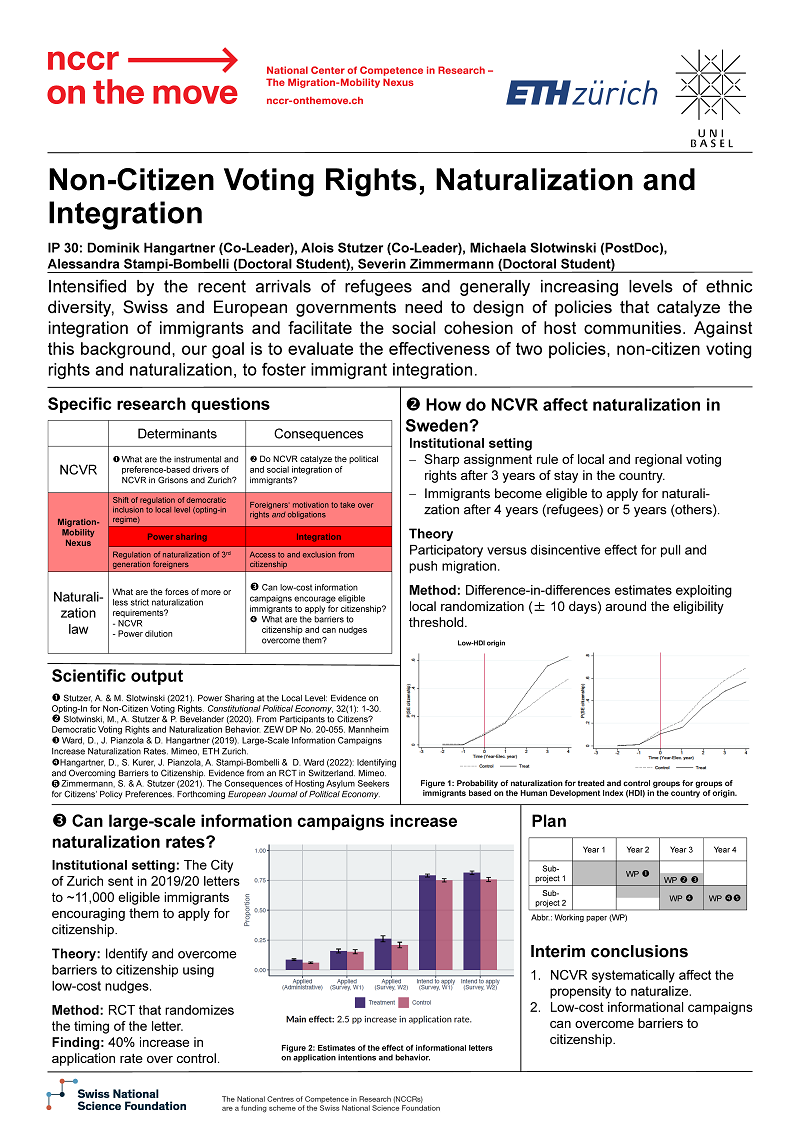Dominik Hangartner and Alois Stutzer
Non-Citizen Voting Rights, Naturalization and Integration
Project Summary
Intensified by the recent influx of refugees and generally increasing levels of ethnic diversity, Swiss and European governments are struggling with the design of policies that catalyze the integration of immigrants and facilitate the social cohesion of host communities. Against this background, we evaluate the effectiveness of non-citizen voting rights and naturalization for social cohesion.
Subproject one focuses on the role of non-citizen voting rights in migrants’ integration. Our goal is to better understand the impact of non-citizen voting rights on a wide range of economic, political, social, psychological, and health outcomes. We examine non-citizen voting rights in different contexts where foreigners get the right to vote in municipal and/or regional elections. The second subproject estimates the effectiveness of various nudges designed to increase the propensity to apply for citizenship, along with the impact of citizenship on economic success. For this project, we collaborate with several cantons and cities in Switzerland.
Scientific Poster 2022 (PDF)
Key Findings:
- Non-citizen voting rights systematically affect the propensity to naturalize.
- A study on a recent outreach action by the City of Zurich shows that information campaigns can increase naturalization application rates by lowering important hurdles to citizenship.
- Information letters increase the sense that immigrants are welcome to naturalize, enable immigrants to better know the requirements for naturalization, and reduce the complexity of the procedure.
Project-related scientific publications


